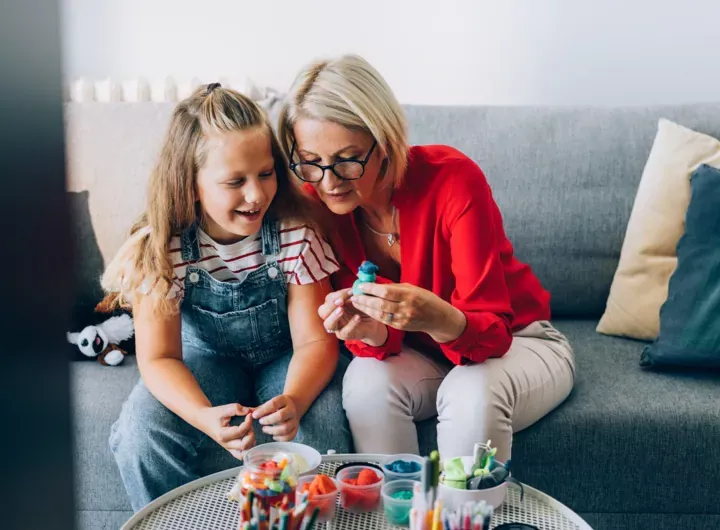
It will be grand! Team parenting for grandparents
Being a grandparent can be a unique and joyful experience filled with opportunities to nurture, support, and build lasting connections with your grandchildren. It’s a chance to share your wisdom and create wonderful memories. You also get to witness the next generation of your family grow and thrive! You bring along all the knowledge you gained as a parent. Yet it is important to remember that being a grandparent is quite different and you may need to learn some new skills. This time around, you’ll be supporting your children as they navigate the challenges of parenting. By embracing your roles and responsibilities, you can have a positive impact on the family dynamic and help build strong, meaningful bonds that can last a lifetime.
Becoming a positive grandparent
Like being a parent, there is no perfect or correct way to be a grandparent. You might be focused on helping support your children navigate parenthood. You may be a grandparent who has day-to-day care or additional guardianship. In some situations, it’s grandparents raising grandchildren. For many reasons – such as the rising cost of living – grandparents are being asked to take a more active role and to join the parenting team.
Grandparenthood looks different for everyone, but no matter the dynamic or challenges, you can find ways to support your children and build healthy relationships with your grandchildren. Let’s take a look at some tips you may find helpful.
Find your place in the family dynamic
Children learn from moment to moment and are strongly affected by the family dynamic.
As you nurture your relationship with your grandchildren, it is important to also look after your relationship with your own children and find ways to work together as a parenting team. When grandparents and parents cooperate well, it reduces stress and anxiety for everyone in the family. Communicate openly with your children, understand their parenting style and respect their boundaries (while creating your own).
It’s a balancing act, but this way, life becomes easier and better for everyone in the family.
Learn to manage your stress
In general, grandparents who have moderate involvement in taking care of their grandchild experience health and wellbeing benefits.
However, because different cultures have different views and expectations on grandparenting, the best amount of caregiving for wellbeing can vary from one culture to another1. It is important to work out what is best for you and your family.
Children pick up on a lot more than we might think and one of those things is our own stress and anxiety. Being a grandparent can sometimes be extremely stressful, but there are helpful ways to recognise and reduce tension.
Learning to listen to your body and recognise signs of stress – such as headaches, bad sleep and irritability – is the first step. Next, work out what factors cause you stress and see if you can address them by making some lifestyle changes. If you feel you cannot provide practical or emotional support to your children in the ways they expect, have an open conversation with them.
Honest and calm communication is an important factor of being a strong parenting team. It will take practice and time, but the results will be worth it – for you, your children and your grandchildren.
Spend quality time with your grandchildren
A wonderful way to build a healthy family relationship with your grandchildren is by spending meaningful time with them, focusing on activities they enjoy. It shows your grandkids that they are valued and loved, and it gives you a chance to learn more about their interests and personalities. Whether it's baking together, building blocks, listening to their new, favourite band, or reading a book together, sharing in their interests will strengthen your bond naturally.
Aim for regular, dedicated moments that help build a connection and allow you to be actively involved in their lives. If you live far away, consider using video calls or social media to enable this.
Listen actively
When your grandchildren speak, show a genuine interest in what they have to say. Listen without interrupting, look at them while they speak, ask questions, and build on what they have to say.
By developing positive listening habits, you show your grandchildren that you care about their thoughts and feelings. This helps them feel understood and respected. These habits grow open communication and help grandkids feel more comfortable sharing their experiences and concerns with you. By being a good listener, you show them that their opinions and emotions are important to you.
Share your life story and wisdom
Share your life experiences and stories with your grandchildren. This can be through anecdotes about their parents when they were younger or lessons you’ve learned over the years. It helps them understand family history and gain valuable life lessons.
Sharing stories also bridges generational gaps and fosters a sense of connection to their heritage. It’s a wonderful way to pass down family traditions and values while also engaging in meaningful conversations that enrich their understanding of the world.
Joining the parenting team as a grandparent is all about blending your new but important role with your family’s needs. By working closely with your children and managing your stress, you help create a supportive, loving environment for everyone.
Spending quality time with your grandkids, really listening to them, and sharing your stories not only strengthens your bond but also enriches their lives. These efforts make for a happy, connected family and ensure that your relationships with both your children and grandchildren grow deeper and last longer.
Grandparents too can further build their parenting skills and knowledge with support from Triple P Online.
References
1Chan, A. C., Lee, S. K., Zhang, J., Banegas, J., Marsalis, S., & Gewirtz, A. H. (2023). Intensity of grandparent caregiving, health, and well-being in cultural context: A systematic review. The Gerontologist, 63(5), 851-873. https://doi.org/10.1093/geront/gnac026